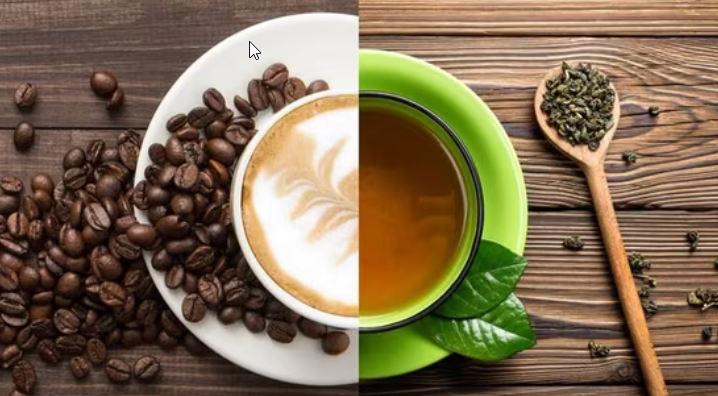In the realm of beverages, coffee and tea have long been cherished for their ability to energize and comfort. Yet, their role extends beyond daily rituals and social moments. New research reveals these popular drinks might hold the key to reducing the risk of certain cancers. Let’s explore how drinking coffee and tea can influence the likelihood of developing head and neck cancers, based on comprehensive studies. While these findings offer hope, they also emphasize the complexity of tea and coffee habits and their varied effects on health.
Recent analyses have suggested that drinking coffee or tea may help lower the risk of cancers in areas such as the mouth, throat, and lower parts of the neck. Research published in the journal Cancer indicates that consuming 3–4 cups of coffee daily can decrease the likelihood of developing head and neck cancers by 17%. Similarly, drinking one cup of tea daily has been associated with a 9% reduction in cancer risk in these regions.
The Implications of these findings are profound, particularly when considering the high incidence rates of oral and throat cancers worldwide. As more data emerge, the focus on how bioactive compounds in coffee and tea contribute to these outcomes is gaining momentum.
What Makes Coffee and Tea Special?
Both coffee and tea are rich in bioactive compounds, including antioxidants and anti-inflammatory agents. These elements combat free radicals and reduce inflammation, which are key contributors to cancer development.
Coffee: Known for its high caffeine content, coffee also contains chlorogenic acids and diterpenes, which have shown potential in suppressing tumour growth and supporting cellular health.
Tea: Whether black, green, or white, tea is packed with flavonoids, polyphenols, and catechins, all of which play a role in protecting cells from oxidative stress.
Interestingly, even decaffeinated coffee has shown benefits in reducing the risk of certain cancers, suggesting that its protective qualities are not solely dependent on caffeine.
The research analysed data from over 14 studies involving close to 9,550 cancer patients and 15,800 individuals without cancer. Participants provided information about their coffee and tea consumption habits, revealing significant insights:
Coffee Consumption
1. Caffeinated Coffee:
• Drinking more than four cups daily reduced the risk of head and neck cancers by 17%.
• It lowered the chances of oral cavity and throat cancers by 30% and 22%, respectively.
• For hypopharyngeal cancer (a type found at the bottom of the throat), a 41% reduced risk was noted among those who drank 3–4 cups daily.
2. Decaffeinated Coffee:
• Drinking decaffeinated coffee was linked to a 25% reduction in the risk of oral cavity cancer.
Tea Consumption
1. One Cup Daily:
• A single cup of tea daily was associated with a 9% lower risk of head and neck cancers.
• It also showed a 27% reduced risk of hypopharyngeal cancer.
2. Excessive Consumption:
• Drinking more than one cup of tea daily was paradoxically linked to a 38% higher risk of laryngeal cancer (cancer of the voice box).
The research primarily focused on populations in North America and Europe, where coffee and tea consumption patterns are relatively consistent. However, habits in regions like South America, Asia, and Africa differ significantly, highlighting the need for broader studies to understand regional variations.
For instance:
• South America: Yerba mate is a common beverage, consumed differently from traditional teas.
• Asia: Green tea dominates, and its preparation and consumption are culturally distinct.
• Africa: Herbal teas, such as rooibos, are widely consumed and may have different bioactive properties.
These cultural differences could influence how coffee and tea impact health across diverse populations.
While coffee and tea show promise in reducing cancer risks, moderation is key. Overconsumption, particularly of tea, may have adverse effects, such as an increased risk of laryngeal cancer. This raises important questions about the optimal quantity and preparation methods for these beverages.
To reap the potential benefits without unintended consequences:
Limit coffee intake to 3–4 cups daily.
Keep tea consumption to one cup daily, focusing on natural and minimally processed varieties.
Avoid adding excessive sugar or high-fat creamers, which can negate health benefits.
Coffee and tea are not just cancer fighters, they offer a host of other health advantages:
1. Heart Health: Moderate coffee consumption has been linked to improved cardiovascular health, while tea can lower blood pressure.
2. Cognitive Function: Caffeine boosts alertness and may reduce the risk of neurodegenerative diseases like Alzheimer’s.
3. Longevity: Regular coffee drinkers have shown longer lifespans in some studies, possibly due to its anti-inflammatory properties.
While the findings are promising, the study highlights the complexity of coffee and tea habits. Many variables, such as preparation methods, brewing time, and the addition of sweeteners, can influence their health effects.
Moreover, lifestyle factors like diet, exercise, and smoking habits also play a role in cancer risk and need to be accounted for in future research. Understanding these nuances will provide clearer guidance on how best to incorporate coffee and tea into a cancer-preventive lifestyle.
Healthcare professionals can play a pivotal role in spreading awareness about the potential benefits of coffee and tea. By incorporating these findings into dietary recommendations, they can guide patients toward healthier beverage choices.
However, caution must be exercised when making generalized recommendations, as individual tolerance and health conditions vary widely.
The connection between coffee, tea, and reduced cancer risk is an exciting frontier in nutritional science. These beloved beverages, when consumed in moderation, offer more than just a caffeine kick, they provide a shield against some of the deadliest cancers affecting the head and neck.
Yet, this is not a one-size-fits-all solution. Cultural practices, individual health, and broader dietary habits all influence how these drinks impact health. As research continues to unfold, one thing remains clear: sipping smartly can be a step toward a healthier life.
Whether you’re a coffee enthusiast or a tea lover, the key is balance, mindfulness, and savouring each cup as a gift of both comfort and health.

 These beloved beverages, when consumed in moderation, offer more than just a caffeine kick, they provide a shield against some of the deadliest cancers affecting the head and neck.
These beloved beverages, when consumed in moderation, offer more than just a caffeine kick, they provide a shield against some of the deadliest cancers affecting the head and neck.










.jpeg)



.jpeg)
.jpeg)


.jpeg)
.jpg)





.jpeg)



